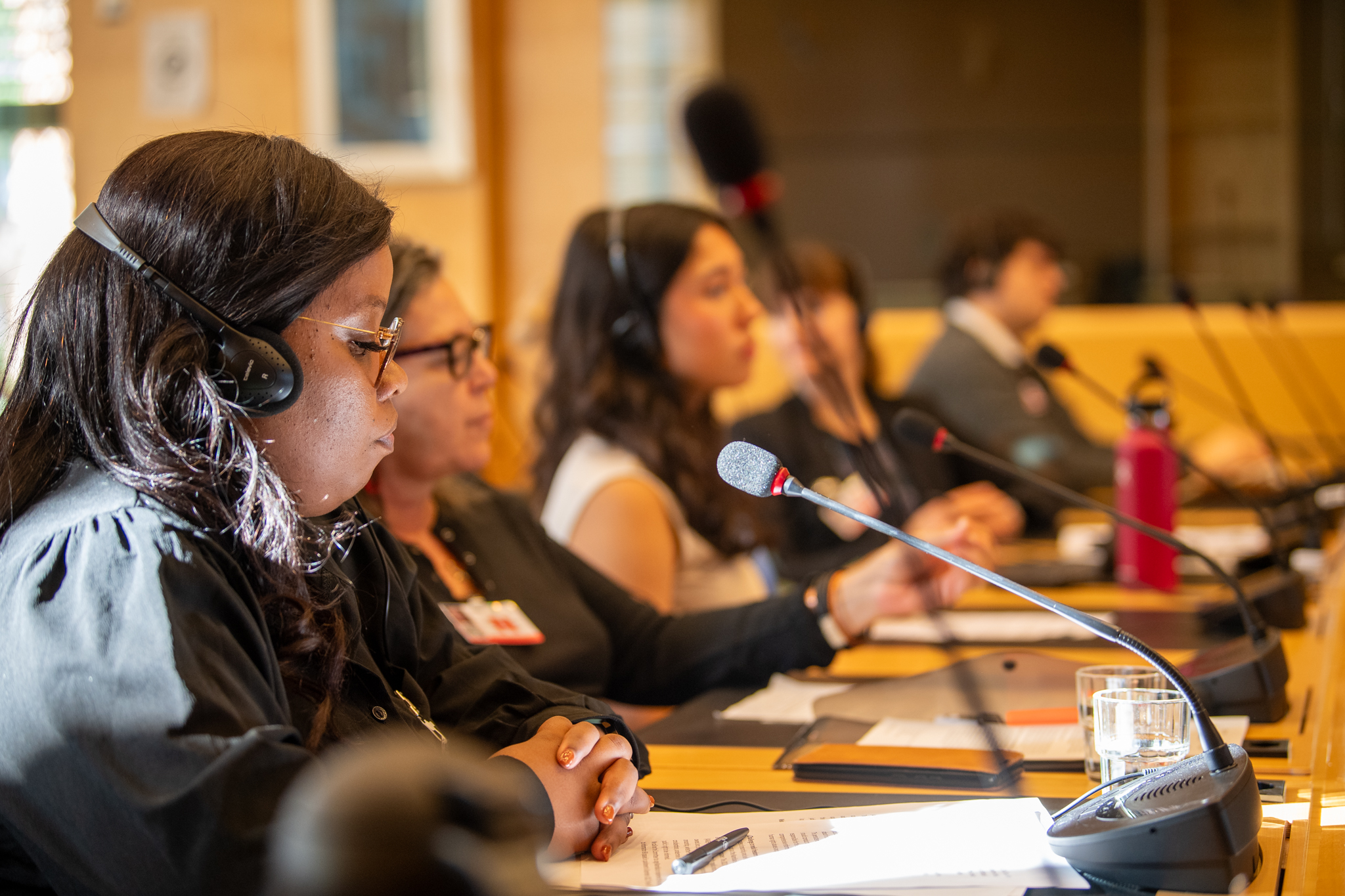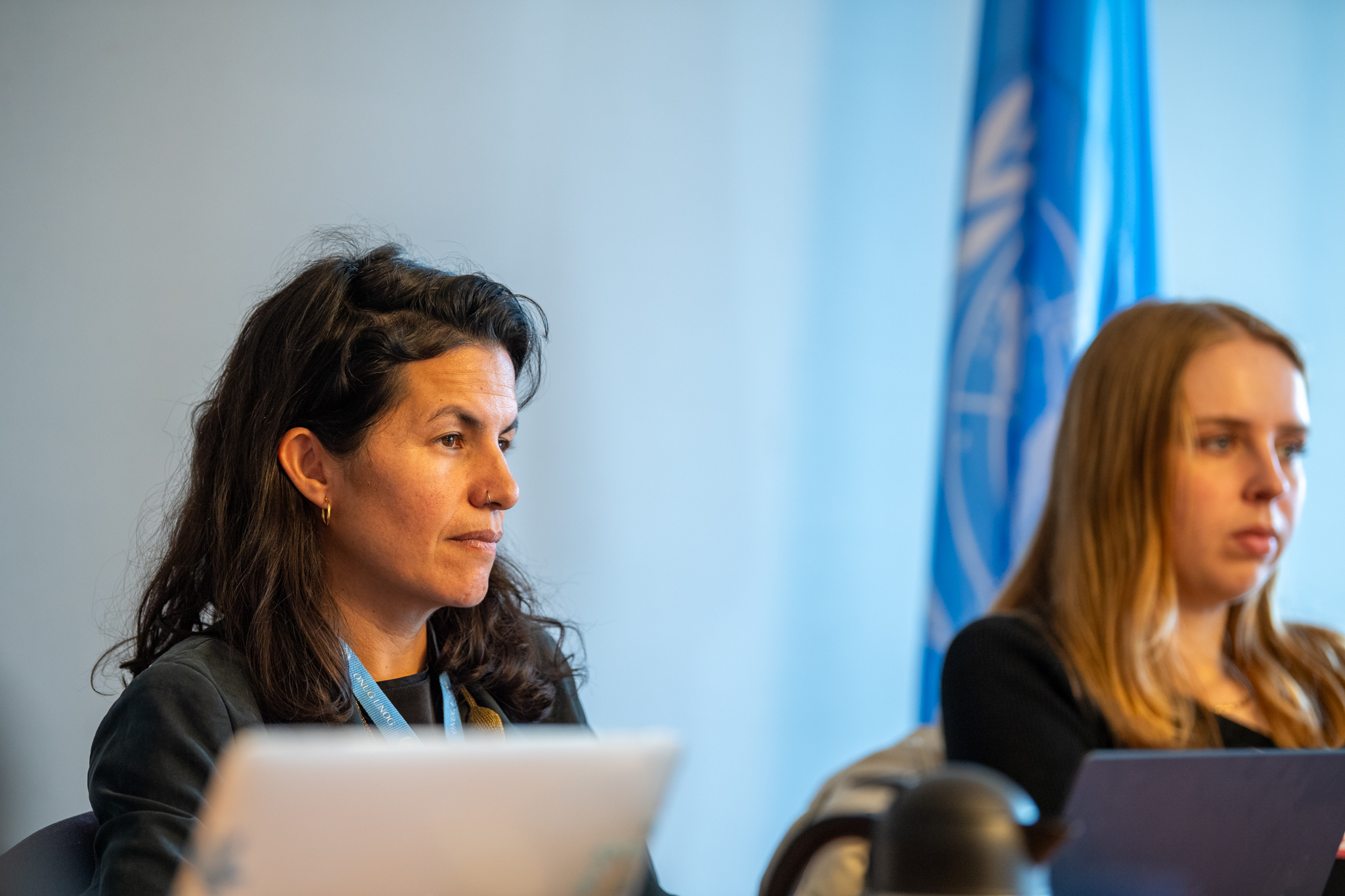Overview of the 140th Session of the Human Rights Committee (4 - 28 March 2024)
Published on 20 Mar 2024, 10:49 AM
The Committee reviewed seven countries on the application of the ICCPR. The review of Somalia finally took place, while Guyana was changed to hybrid mode at the very last moment.
 Members of Namibian civil society during a formal briefing with the Human Rights Committee in Palais Wilson, Geneva.
Members of Namibian civil society during a formal briefing with the Human Rights Committee in Palais Wilson, Geneva.
State reviews of seven countries, including the first ever review of Somalia
The Human Rights Committee conducted seven reviews of periodic reports and adopted Concluding observations on Chile, Namibia, Somalia, Indonesia, United Kingdom and Northern Ireland, Serbia, and Guyana. The Committee also adopted the List of Issues in relation to Mongolia and Vietnam, and the List of issues prior to reporting of Andorra, Azerbaijan, Djibouti and Mali.
This session was marked by the new decision of the United Nations Offices at Geneva (UNOG) to remove the option to participate remotely in the formal briefings due to budget cuts, and so only pre-recorded videos were allowed. Due to the worrisome impact this can have on civil society participation, especially for those who cannot afford to travel to Geneva, the Centre organised hybrid informal briefings with the Committee, in which human rights defenders participated both online or in person.
Another recent development was the resignation of Committee member Mr. Farid Ahmadov, who had just joined the Committee in February 2023 and was the Committee’s Rapporteur. Mr. Ahmadov resigned due to his recent appointment as Minister of Justice of Azerbaijan.
Moreover, after being rescheduled in the 138th session, Somalia was finally reviewed by the Committee for the first time, more than 34 years after its ratification of the ICCPR. Human rights defenders from Somalia aimed to come to Geneva to participate in person, but unfortunately their visas were rejected by the Swiss Embassy of Nairobi. Their online participation was still facilitated by the Centre.
Lastly, the review of the UK report came along with the significant participation of British NGOs who attended the formal and informal briefings with the Committee. The four National Human Rights Institutions of the UK were also present and made significant contributions.
NGO Briefings facilitated by the Centre

In total, the Centre facilitated the engagement of 178 Human Rights Defenders with the Committee, including several who participated remotely. Seven CSO briefings were organized by the Centre in hybrid format for the countries reviewed, in addition to the two formal briefings organized by the Secretariat. Moreover, the Centre also organized two online briefings for the List of issues prior to reporting of Mali and Vietnam. The Centre is also very much involved in supporting the Human Rights Defenders in exile.
Follow-up to Concluding Observations and Views
The Committee adopted a Follow-up report to Concluding Observations concerning Finland, Paraguay, Tunisia, and Uzbekistan.
The report on Follow-up will be available soon here.
Unfortunately, the presentation and adoption of the Follow-up report on Views was postponed to the next Committee session.
Decisions adopted on Individual communications
The Committee adopted 43 decisions, 19 were decided on the merits, 9 cases were declared inadmissible, and 15 communications were discontinued.
Regarding the cases which were decided on the merits, the Committee found: 19 violations.
At the end of the session, the Committee informed that there has been a violation of the Covenant in 1,475 (73%) of the 2,019 Views that it had adopted since 1977.
Next on the agenda
The next 141st session will take place from 1 July to 2 August 2024. The Committee will review Croatia, Honduras, India, Maldives, Malta, Suriname and Syria.
It will also adopt the List of Issues of Chad and the List of Issues Prior to Reporting of Austria, Costa Rica, Côte d'Ivoire, Latvia, and Sierra Leone.
The Committee will also evaluate the reports of Democratic Republic of Congo, Liberia and the Lao People’s Democratic Republic under its follow-up procedure to the Concluding Observations.
 Members of Namibian civil society during a formal briefing with the Human Rights Committee in Palais Wilson, Geneva.
Members of Namibian civil society during a formal briefing with the Human Rights Committee in Palais Wilson, Geneva.


